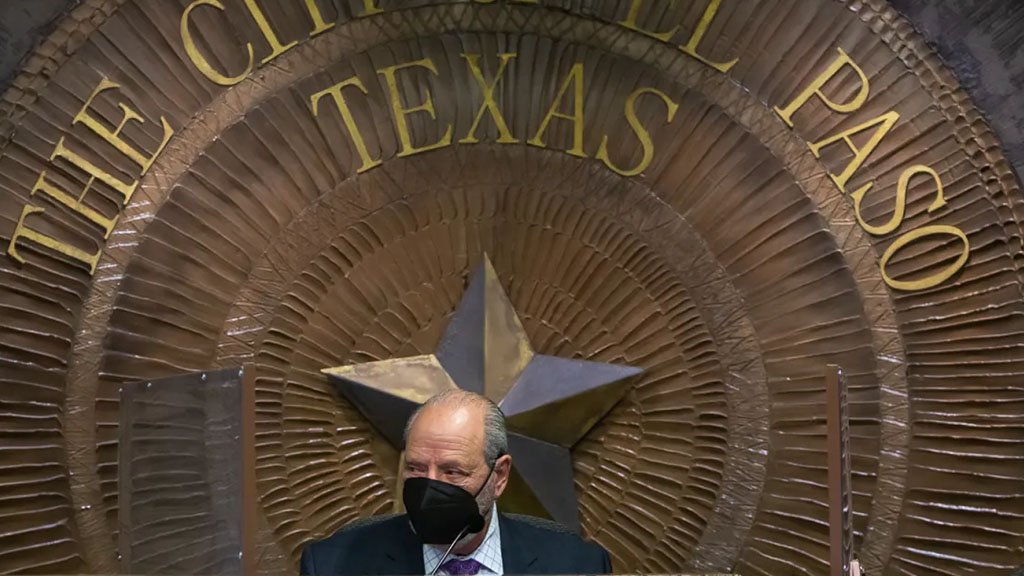El Paso’s migrant response shaped by concerns of Abbott reaction, mayor says

EL PASO, Texas -- Mayor Oscar Leeser on Monday said he didn’t call for a disaster declaration over the increasing number of migrants coming through El Paso because area leaders were concerned that doing so would prompt the governor to send the National Guard to the region.
“We were really worried that the governor would get the letter and he would send the National Guard down to the border, the (Department of Public Safety) down to the border, and create a scene that was not welcome in our community,” Leeser said.
Leeser said he met with County Judge Ricardo Samaniego and the city and county attorneys last week to discuss the ramifications of the declaration as the local governments scrambled to figure out their roles in the looming humanitarian response.
Texas Gov. Greg Abbott on Friday activated the Joint Border Security Operations Center to its highest level, directing the Texas Department of Public Safety, the Texas Military Department and Texas Division of Emergency Management “to coordinate Texas' response to secure the border.”
Instead of a disaster declaration, the City Council on Monday approved an emergency ordinance that allows the city manager to assign city personnel and resources to help nongovernmental agencies such as Annunciation House that temporarily house migrants.
The wheels were already in motion.
The El Paso City-County Office of Emergency Management on May 17 -- two days after border-enforcement agents dropped off more than 100 migrants at a Downtown bus station -- reallocated 29 COVID-19 operations staff to assist as migrant shelter surge staff, the emergency ordinance states.

The personnel were assigned to Casa del Refugiado, a hospitality site of the nonprofit Annunciation House that has for 40 years worked to provide shelter, food and other humanitarian assistance to migrants.
Annunciation House founder and executive director Ruben Garcia has been warning about the situation, last week again calling on the city and county to take over some of the management of Casa del Refugiado so trained volunteers there could in turn help increase capacity at other shelters, particularly churches.
Garcia couldn’t immediately be reached for comment.
The city’s emergency ordinance allows the job specifications for general disaster operations to include humanitarian relief duties to hire and assign staff to assist nongovernmental entities already mitigating the migrant surge. It also allows the city manager to enter into contracts above $50,000 -- his current authority -- without council approval for expenses related to the migrant surge.
The federal government will reimburse local governments for expenses and non-government organizations for expenses related to housing migrants, U.S. Rep. Veronica Escobar, D-El Paso, confirmed last week. The federal government won’t directly provide additional facilities to house migrants as it did for the Afghan migrants or unaccompanied migrant children in the past, she said.
The city’s emergency ordinance comes after a federal judge last week kept in place Title 42, the public health provision that allows the United States to expel migrants to other countries under the premise of avoiding the spread of COVID-19. The provision was set to end Monday, May 23, but the judge ruled in favor of states challenging the Biden administration’s plans to rescind the order.
The Southwest border is seeing an increase in migrants, including in the borderland, where the U.S. Border Patrol El Paso sector has seen a 56% increase in the number of encounters with migrants so far this fiscal year compared to this time last year. Many of those encounters are with repeat border crossers, who face no consequences for returning after expulsion.
The ordinance also calls for the city to continue to prepare and evaluate the need for mass emergency sheltering in anticipation of the eventual repeal of Title 42.
Deputy City Manager Mario D'Agostino, the city’s former fire chief, said that while Title 42 was not rescinded and a disaster declaration was not needed at this point, the ordinance allows the city to be ready for any spikes in the number of migrants coming to our doorstep.
“This would get us to where we need to be,” he told the City Council Monday.
The emergency ordinance -- which requires a unanimous vote -- first failed because city Rep. Claudia Lizette Rodriguez voted against it, asking why it was necessary if the disaster declaration was not.
The ordinance was reconsidered and approved after Rodriguez asked Leeser to promise he’d sign a disaster declaration when and if warranted. “Absolutely, yes,” Leeser replied.
Before the second vote, city Rep. Alexsandra Annello said that with or without the city government’s help, borderland residents would respond to the crisis.
“This isn’t a conversation about immigration or what our stance is on immigration,” she said, adding that the city’s ordinance was about avoiding chaos and assisting those dealing with the humanitarian crisis.
“It’s not our money, it’s the federal government’s money,” she added.
El Paso County Judge Ricardo Samaniego and the county government also didn’t issue a disaster declaration and instead discussed options on how to help mitigate the situation. No action was taken after an executive session discussion during Monday’s County Commissioners Court meeting.
‘We've got a little more time with Title 42 still being in place but we have to be ready before the larger number of migrants start coming through,” County Commissioner David Stout said after the meeting.
This article first appeared on El Paso Matters and is republished here under a Creative Commons license.![]()
